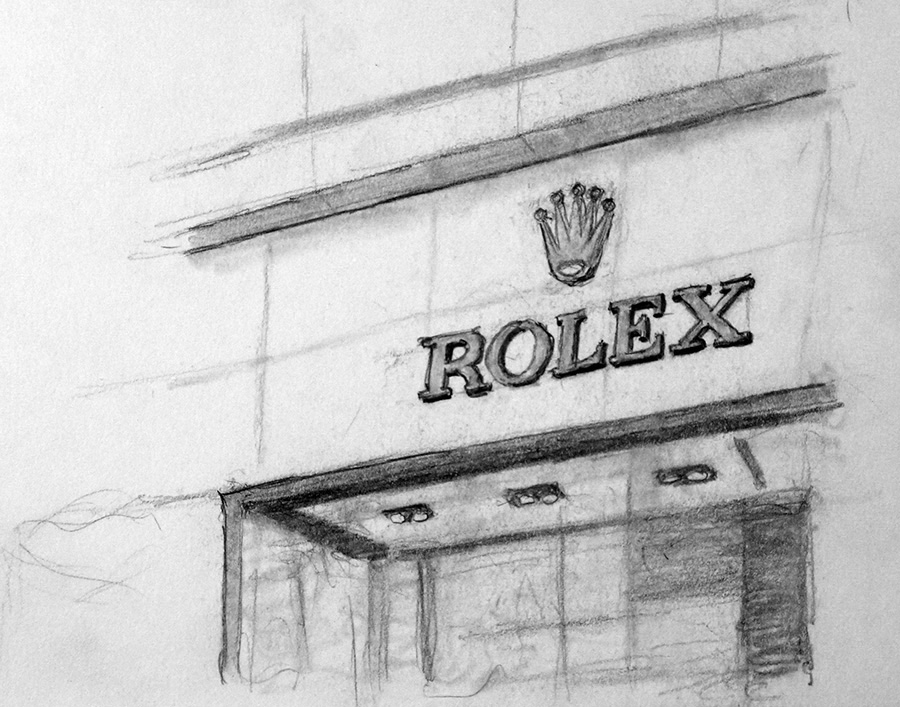
I’m waiting for a bus on 5th Avenue after having left an opening a few blocks north. Across the street from the bus stop sits the Rolex flagship store; behind me on the sidewalk stands an African man selling pirated ‘Rolexes’ out of a grimy suitcase perched on a rolled-up cardboard pedestal. Every so often he solicits a passing pedestrian with the magic word, ‘Rolex’ – but no one stops or even pays him so much as a passing glance. The Rolex showroom across the street, meanwhile, sits like a gleaming, immaculate package of luxury treasures. It too, I notice, attracts little interest from the passing traffic. On one side of the street the ultimate masculine status symbol encapsulated in gilded, trophy architecture; on the other a sidewalk vendor selling cheap knockoffs. A brand known for the highest level of quality becomes a victim of its own success, the prestigious name hollowed-out to become an empty signifier of ‘quality’, mass-produced in China. Meanwhile, its showroom sits empty (because, I think, who would simply walk in off the street and buy a $50,000 watch?) The sidewalk vendor, though, has taken the totemic power of the brand too literally, assuming that the value of the name ‘Rolex’ alone will trump the sheer seediness of his presentation. A car pulls up to the curb and I watch as the man folds the suitcase closed and starts to remove it from its provisional pedestal; but after a beat he relaxes – the car is just a civilian dropping someone off, not a cop. He reopens the suitcase and goes back to work. How many times does this happen during his evening shift? Is the threat of a police raid here real or imagined?
Leave a comment